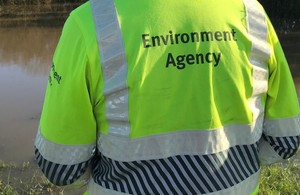Environment Agency urges farmers to start preparations for winter slurry storage
Environment Agency stepping up support for farmers facing slurry storage issues through another potentially difficult winter season.

The Environment Agency (EA) is urging farmers to start their preparations now for winter slurry storage, with their Winter Ready campaign.
While the current dry weather is at the front of minds, with rainfall across England 20% less than long term average for June, farmers also need to start considering the weather extremes that winter may bring.
To help ensure farmers have enough storage and a robust back-up plan in place, the EA’s Winter Ready campaign will support farmers across the country facing slurry storage issues.
The EA is encouraging farmers to start their preparations now, and to contact them for advice if necessary. If you have any questions or concerns, please speak to your local EA Officer or call the EA’s National Customer Contact Centre hotline on 03708 506 506.
Some simple steps and solutions to tackle slurry storage issues include:
-
Ensuring you have adequate storage to see you through winter without the need to spread. The EA recommends having six months of storage to help comply with the requirements of the Farming Rules for Water to spread only according to crop and soil need.
-
Covering slurry tanks, lagoons and pits and using the summer months to fix drainage and clear guttering to ensure separation of clean and dirty water, meaning less rainwater mixes with slurry to increase its volume.
-
Refraining from taking sludge, digestate or other materials if you don’t have an immediate need for them. Even if you are contracted to take these materials, all producers have a responsibility to ensure bi-products and waste are properly disposed of.
Environment Agency Deputy Director for Agriculture, Nicola Riley said:
Recent Met Office research has found that weather extremes are now the norm in the UK with wetter winters and drier summers. Currently the pressing issue of the impact of drought is at the front of minds and the Environment Agency is working closely with farmers and growers to help secure water this summer.
It is important too that we look ahead to the wet weather we can expect towards the end of the year and we are helping farmers to get ready ahead of time by supplying guidance and practical solutions.
We’re urging farmers to start their preparations now, with the Environment Agency on hand to help farmers find the right solutions that work for them.
Last month ministers met representatives from the farming sector, environmental groups and the water industries to start a review aimed at making the rules and regulations that apply to farming clearer and more effective helping reduce and prevent pollution from farms.
Farmers should plan spreading and use of other fertilisers to meet soil and crop need at the time of application and to minimise the risk of pollution. This means that in the majority of cases there is no requirement for spreading in the autumn and winter months.
Farmers can also apply for a range of capital items available through the Capital Grants offer that can support farmers to reduce the amount of slurry generated on their farm. This includes slurry store covers, roofing, concrete yards and drainage systems.
A Catchment Sensitive Farming advisor can visit farms and provide advice on how these can best be utilised.
Notes to Editors
-
If you have any concerns or questions about adequate slurry storage for the winter, contact your local EA Officer or call the EA’s National Customer Contact Centre hotline on 03708 506 506 or emailing enquiries@environment-agency.gov.uk.
-
The EA recommends using the online Slurry Wizard Tool to help farmers with calculations.
-
Farmers can also look at the Harvesting Success booklet which provides advice to comply with the law, reduce your risk of causing pollution and benefit their business.
-
Read the Environment Agency blog on slurry Winter Readiness for further information.